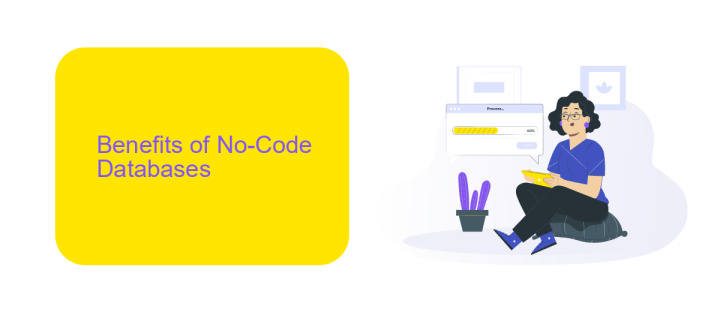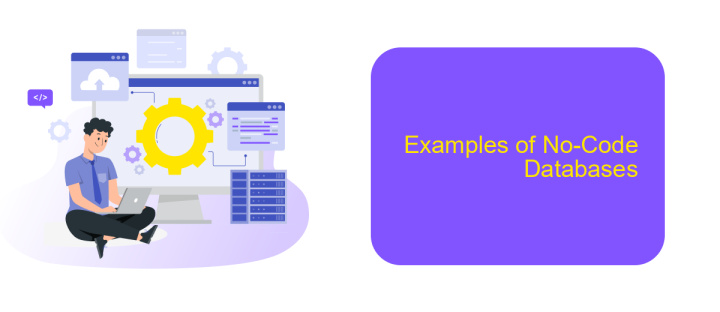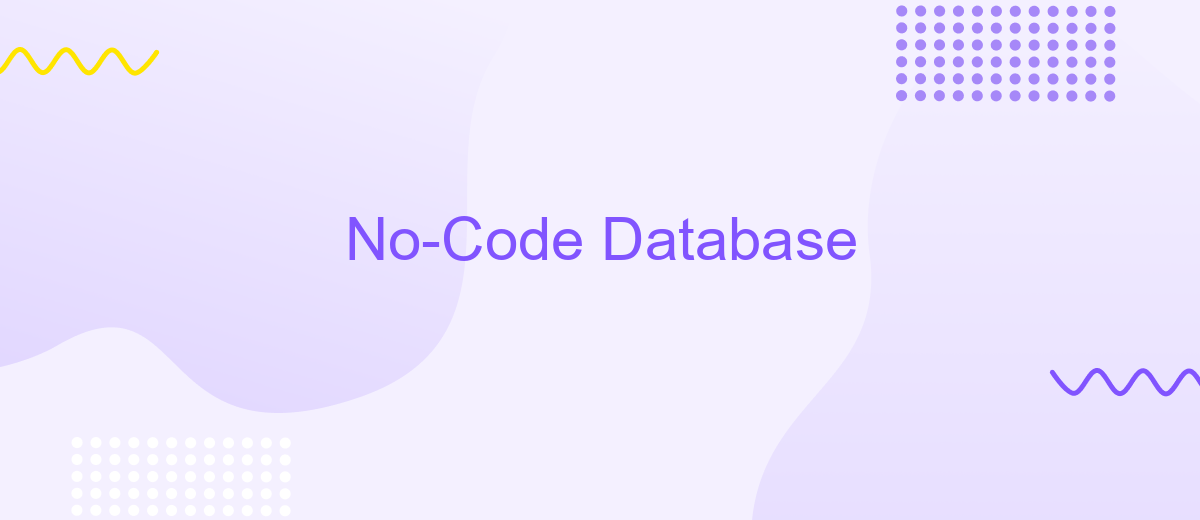No-Code Database
In today's fast-paced digital landscape, no-code databases are revolutionizing how businesses manage and utilize data. By eliminating the need for complex coding skills, these user-friendly platforms empower individuals and teams to create, customize, and deploy databases quickly and efficiently. This democratization of database management is enabling more people to harness the power of data to drive innovation and growth.
Introduction
No-Code databases are revolutionizing the way individuals and businesses manage data. These platforms allow users to create, modify, and maintain databases without writing a single line of code, making database management accessible to non-technical users. The rise of no-code solutions is democratizing technology, enabling more people to turn their ideas into functional applications quickly and efficiently.
- Ease of use: No coding skills required
- Cost-effective: Reduce the need for expensive developers
- Rapid deployment: Launch projects faster
- Flexibility: Easily adapt to changing needs
Integrating no-code databases with other tools and services is also straightforward. For instance, using platforms like ApiX-Drive, users can automate data transfer between their no-code database and other applications, enhancing productivity and ensuring seamless workflows. As no-code solutions continue to evolve, they are set to play a crucial role in the future of technology and business operations.
Benefits of No-Code Databases

No-code databases offer numerous benefits, making them an ideal choice for businesses and individuals looking to streamline their operations. One of the primary advantages is the significant reduction in development time and cost. Without the need for extensive coding skills, users can quickly create and manage databases, allowing for faster project turnaround and reduced dependency on specialized developers. This democratizes database management, enabling non-technical staff to contribute effectively.
Another key benefit is the ease of integration with other tools and services. Platforms like ApiX-Drive facilitate seamless connectivity between no-code databases and various applications, automating workflows and enhancing productivity. This integration capability ensures that data flows smoothly across different systems, reducing manual data entry and minimizing errors. Additionally, no-code databases often come with user-friendly interfaces and customizable templates, making it easier for users to tailor the databases to their specific needs without extensive training.
How to Choose a No-Code Database

Choosing the right no-code database can significantly impact your project's success. Here are a few essential factors to consider:
- User Interface: Ensure the platform has an intuitive and user-friendly interface. This will help you and your team to quickly get accustomed to the tool.
- Scalability: Check if the database can handle your current data needs and scale as your project grows.
- Integration Capabilities: Look for a database that can easily integrate with other tools you are using. Services like ApiX-Drive can help streamline these integrations, making your workflow more efficient.
- Security: Data security is paramount. Ensure that the no-code database offers robust security features to protect your data.
- Support and Community: A strong support system and active community can be invaluable for troubleshooting and learning best practices.
By considering these factors, you can select a no-code database that not only meets your current needs but also supports future growth and integration requirements. Make sure to leverage tools like ApiX-Drive to enhance your database's functionality and connectivity.
Examples of No-Code Databases

No-code databases have revolutionized the way businesses handle data management, making it accessible even to those without technical expertise. These platforms allow users to create, manage, and manipulate databases through intuitive interfaces, eliminating the need for traditional coding skills.
Several no-code database solutions stand out for their ease of use and robust features. They cater to a wide range of applications, from simple data tracking to complex project management. Here are some notable examples:
- Airtable: Known for its flexibility, Airtable combines the functionality of a spreadsheet with the power of a database, making it ideal for project management and collaboration.
- Notion: This all-in-one workspace allows users to create databases, notes, and tasks in a highly customizable environment, perfect for personal and team productivity.
- Bubble: While primarily a no-code app builder, Bubble includes powerful database capabilities, enabling users to create complex web applications without writing code.
- ApiX-Drive: This tool facilitates seamless integration between various no-code databases and other services, automating workflows and ensuring data consistency across platforms.
These no-code databases not only simplify data management but also empower businesses to innovate faster. By leveraging tools like ApiX-Drive for integrations, organizations can further enhance their efficiency and streamline operations without the need for extensive technical resources.


Conclusion
The rise of no-code databases marks a significant shift in how organizations manage and utilize data. These platforms empower users without technical backgrounds to create, manage, and optimize databases, democratizing data management and fostering innovation. By eliminating the need for extensive coding knowledge, no-code databases enable faster deployment, reduced costs, and greater flexibility in adapting to changing business needs.
Moreover, the integration capabilities of no-code databases are enhanced by services like ApiX-Drive, which streamline the process of connecting various applications and automating workflows. This allows businesses to seamlessly synchronize data across multiple platforms, enhancing operational efficiency and decision-making. As the landscape of technology continues to evolve, no-code databases will undoubtedly play a pivotal role in shaping the future of data management, making it more accessible and efficient for organizations of all sizes.
FAQ
What is a No-Code Database?
Who can benefit from using a No-Code Database?
How secure are No-Code Databases?
Can I integrate a No-Code Database with other tools and services?
What are the limitations of No-Code Databases?
Do you want to achieve your goals in business, career and life faster and better? Do it with ApiX-Drive – a tool that will remove a significant part of the routine from workflows and free up additional time to achieve your goals. Test the capabilities of Apix-Drive for free – see for yourself the effectiveness of the tool.

